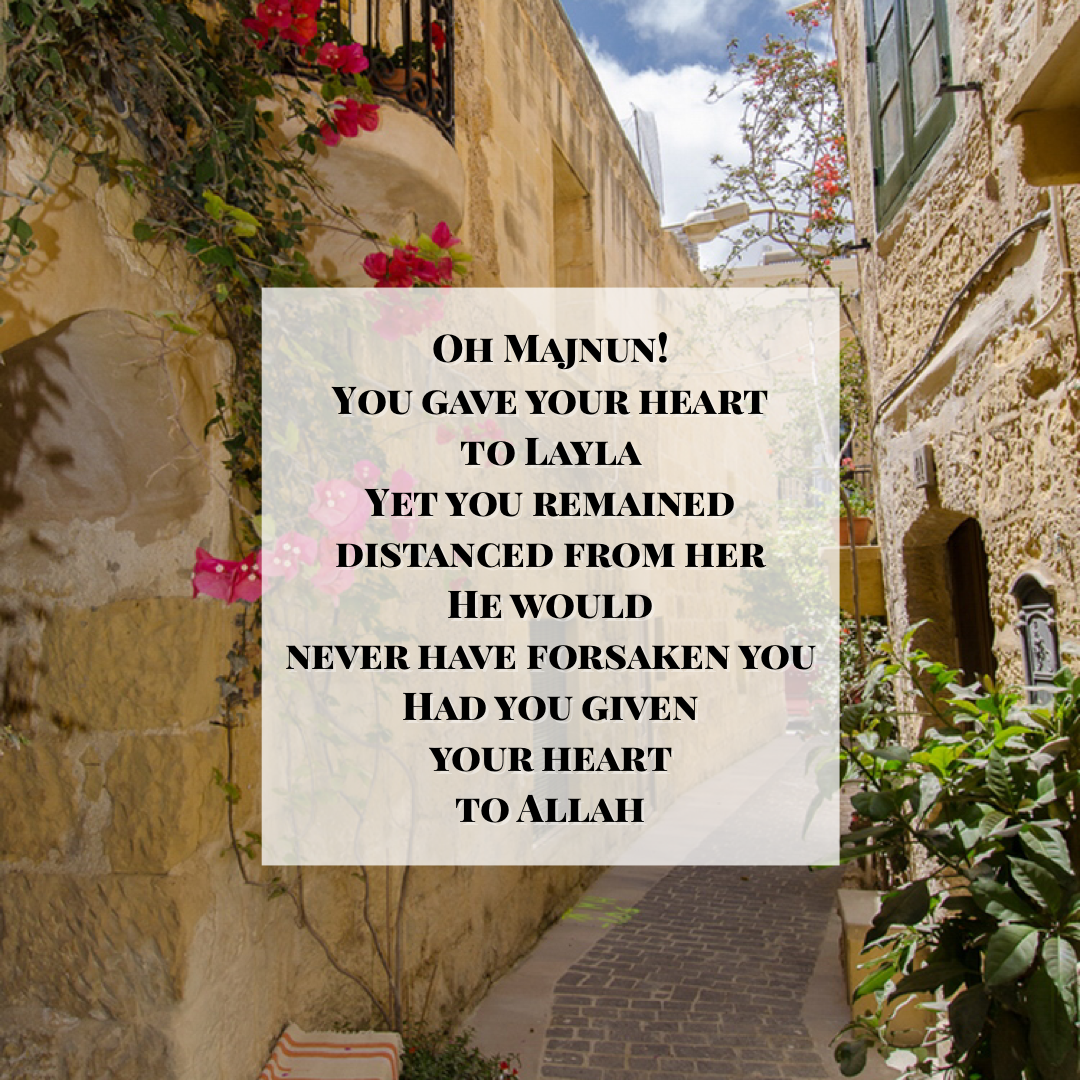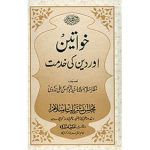Oh Majnun! You gave your heart to Layla
Yet you remained distanced from her
He would never have forsaken you
Had you given your heart to Allah
Allah Ta’ala has made humans and jinns sentient beings. He has given us the ability to feel complex emotions, understand difficult concepts and express ourselves in meaningful ways. He has given us these abilities as gifts but also as tests.
One of these abilities is the feeling and expression of love. He, Almighty, has blessed us with many different levels and forms of love. We love our parents, our children, our spouses, our friends, our teachers, our houses, our pets, our favourite foods and many different things. It is not a sin to love these things; rather it is human nature. Allah Almighty mentions:
Beautified for people is the love of that which they desire – of women and children, heaped-up sums of gold and silver, fine branded horses, and cattle and tilled land. That is the enjoyment of worldly life, but Allah has with Him the best return. [Qur’an 3:14]
However, there is also a test in this love. Allah Almighty mentions:
Your wealth and your children are only a trial, whereas Allah! With Him is a great reward. [Qur’an 64:15]
What is this test? How is Allah Ta’ala testing us in relation to the ones we love, and the possessions we love?
Say (oh Muhammad ﷺ): If your fathers, children, brothers, spouses, relatives, the property that you possess, the trade you fear may have no profit and the homely life are more beloved to you than Allah, His Messenger and fighting for His cause, wait until Allah fulfils His decree. Allah does not guide the evil doers. [Qur’an 9:24]
The test is whether put others before Allah and His Messenger ﷺ. Are they our priority; more beloved to us than all else? Or do we put others before them; make them our second, third or fourth priority?
Let us look at the example of a man called Qays ibn Muzahim. His love for a woman called Layla bint Mahdi was so great that it eclipsed his own identity. He became known as the Majnun (madman) of Layla. So intoxicated was he by her love that he used to hug the walls of the city she lived in, and kiss the dogs that roamed her streets. He would recite,
I pass by these walls, the walls of Layla
And I kiss this wall and that wall
It’s not Love of the houses that has taken my heart
But of the One who dwells in those houses
He was once waiting outside a village where she was residing. He sat down with his feet resting towards the eastern side of the village. Immediately he thought to himself, ‘what if my Layla is in that side of the village? How could I face my feet towards my beloved?’ He then moved his feet towards the western side of the village. Again the same thought plagued him. He repeated this process and only managed to satisfy himself by hanging upside down from a tree!
Such was the Majnun of Layla. He dedicated his love for a woman; for her worldly beauty. Yet Majnun died alone, far from his beloved, far from his desire. This is the nature of worldly love. A person may be as loyal as Majnun in their love for it – but it will be as unattainable as Layla. So which intelligent person will give his heart to such a thing which runs from him, the more he runs after it?
Oh Majnun! You gave your heart to Layla
Yet you remained distanced from her
He would never have forsaken you
Had you given your heart to Allah
On the other hand, there is a man named Owaise ibn Aamir alQarni. He embraced Islam in the life of Nabi Kareem ﷺ . His greatest desire was to meet Nabi ﷺ. However, he had an ailing mother who had no carer besides her son. He sent a message to Nabi ﷺ about his situation and Nabi ﷺ advised him to care for his mother, for this was his main priority. Obeying his beloved, Owaise spent his years dutifully serving his mother until she passed away. When he finally had an opportunity to meet his beloved, he set off to Madinah. Upon reaching Madinah he received the news that Nabi ﷺ , whose face Owaise’s eyes has yearned restlessly to meet, had just passed away. Though this lover did not get an opportunity to meet his beloved, his love was not in vain. Nabi ﷺ would talk about Owaise to his Sahabah and said regarding him,
‘If he would take an oath in the name of Allah (for something), He (Allah) would honour it. Ask him to beg forgiveness (from Allah) for you if it is possible for you.’ [Sahih Muslim]
‘The best one of the next generation (at-Tabi`un) is a man called Owaise.’ [Sahih Muslim]
One who gives his heart to Allah and His Messenger will be met with love from all sides. Indeed, the scholars have said it right when they have said, ‘We, the Ummate Muhammad ﷺ, are at a lofty rank resting between two Kareems. Allah is Al-Kareem (the most generous) and His Nabi is Kareem.
Thus, we should take advantage of this opportunity and become loyal to Allah and His Messenger ﷺ. However, this can only be achieved if we place them beyond all others. Once we do this, we will see the blessings of this in our lives and the lives of those around us. Allah Almighty tells us about Himself in a Hadith Qudsi,
‘When he (my servant) comes closer to Me by a handspan, I come closer to him an arm’s length.’ [Sahih Bukhari]
Meaning when a servant takes one step to draw nearer to Allah Ta’ala, Allah Ta’ala will envelop him in His mercy and acceptance many more times than the servant even imagined. May Allah Ta’ala enable us to make Him and His Messenger our priority in life. Aameen.




